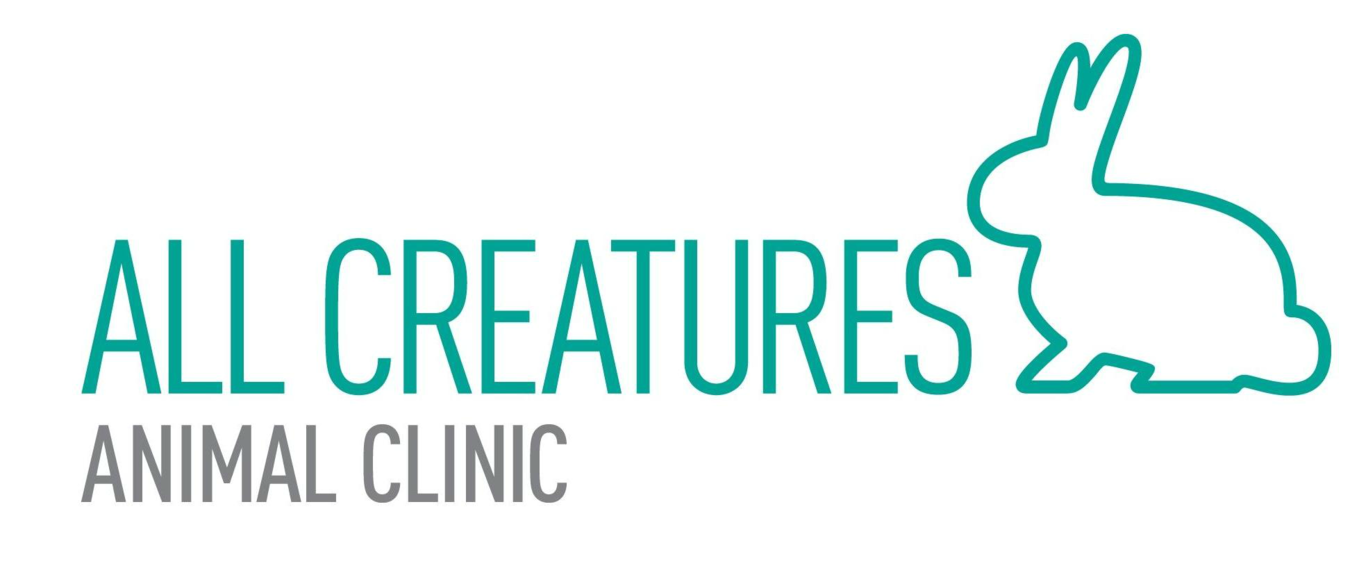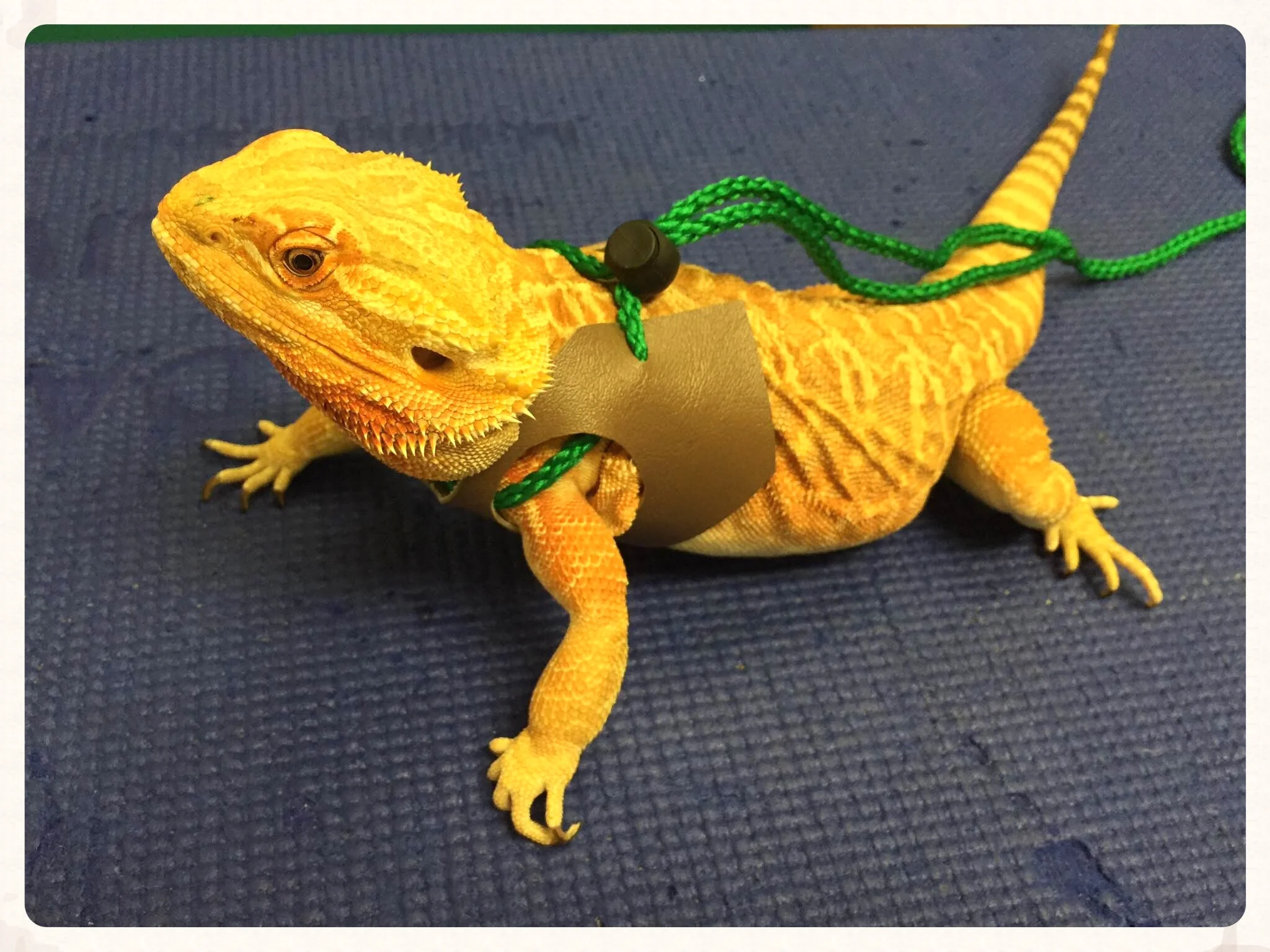CARE OF BEARDED DRAGONS
Feeding Young Beardies (<6 months)
- Feed salad as described for adults daily
- salad should make up 20% of total diet
- Dust salad with a small pinch of Calcium/Vitamin D3 4-5 times per week
- Feed insects 2 times per day (all they can eat in 10-15 minutes) (80% of total diet)
- A young beardie may eat dozens of small insects per day (remember the size rule!)
- Give multivitamin once per week
- Pre-soaked bearded dragon pellets can be offered (no more than 50% of diet)
- Use Calcium/D3 and multivitamins half as often if your beardie eats pellets
Feeding Adult Beardies (>6 months)
- Offer a salad of greens and veggies daily (cut into bite-sized pieces)- 80% of total diet
- Large helpings:
- Mustard Greens
- Bok Choy
- Collard Greens
- Turnip Greens
- Endive
- Parsley
- Dandelion Greens
- Small helpings:
- Squash
- Peas
- Beans
- Carrots
- Sweet potato
- Broccoli
- Bell Peppers
- Bee pollen
- Pre-soaked Bearded Dragon pellets can be offered (no more than 50% of diet)
- Dust salad with small pinch of Calcium/Vitamin D3 3-4 times per week (2-3 times per week if on pellets)
- Dust salad with a multivitamin every other week (Rep-Cal Herptivite Multivitamin) (not required if on pellets)
- Treats can be offered in very small amounts: Melons, Strawberry, Grape, Mango, Blueberry
- Insects can be offered 2-3 times per week (all they can eat in 10-15 minutes)- 20% of total diet
- Crickets, phoenix worms, dubia roaches, earthworms, locusts, black soldier fly larva
- Gut-load your insects: Insects need water and bearded dragon pellets
- Maximum size of insect is the length between your beardie's eyes
- Foods to AVOID: Wild-caught insects (fireflies are toxic), avocado, iceberg lettuce, citrus fruit
Water
- Offer a large shallow water dish that your beardie can fit most of their body into
- Clean the bowl and change the water daily
- Soak your beardie in chest-deep lukewarm water 10-15 minutes 1-2 times per week
Housing
- Ideal enclosure size is 24 x 24 x 48 inches for an adult
- Floors should be lined with reptile carpet, slate tiles newspaper/paper towel
- Avoid sand, mulch, moss
- Offer a hiding spot and multiple branches to climb on
- Avoid heated rocks (can cause burns)
- We recommend solo housing for pet bearded dragons
Lighting and Temperatures
- Use a probe thermometer or infrared laser to determine temperature at beardie level
- Ambient daytime temperature should be 75-80 degrees
- Focal basking spot should reach 95-110 degrees
- Night time temperature can be 65-75 degrees (red lights or ceremic heat sources needed)
- A UVB light should be used in a frequently used area (tube lights are the most efficient)
- Change UVB light bulb every 6 months (even if it is still on)
- UVB light should be about 12 inches above the beardie and no have no glass barriers
- Direct sunlight is best, but stay safe (no glass enclosure outside and monitor carefully)
- Sunlight filtered through window glass is NOT a source of UV light.
- All day-time lights should be on a timer and should be on for 12 hours per day
Medical
- We recommend yearly physical examination and fecals and bloodwork
- "Brumation" is a natural slow-down that some beardies experience
- Consult with a vet for advice if your beardie stops eating or becomes less active
- Common signs of illness include weight loss, not eating, color change, twitching, swollen limbs, nasal or eye discharge, and excessive egg laying. Call for help immediately if concerned
- Weigh your beardie regularly on a gram scale at home (food or postage scales work well)
- Pet insurance is available through "Veterinary Pet Insurance"
Human Health Risks
- Some bearded dragons carry salmonella on their skin- always wash hands after handling
- This is especially important for children
- Minimize fire risks
- Make sure all lamps and heating elements are strongly secured in place
- Keep flammable material far from heating elements and lamps
- Do not over-burden power outlets with multiple lamps
Resources
All Creatures Animal Clinic (Us, of course!) 734-973-1884
Melissa Kaplan's Herp Care Collection: www.anapsid.org
Nationwide Pet Insurance

